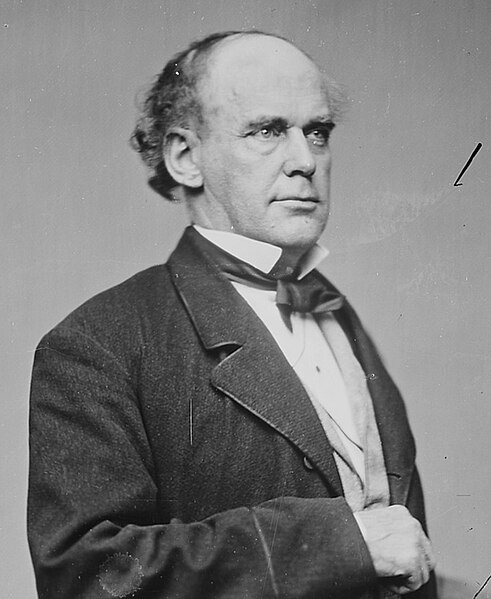Hepburn v. Griswold, 75 U.S. 603 (1870), was a United States Supreme Court case in which the Chief Justice of the United States, Salmon P. Chase, speaking for the Court, declared certain parts of the Legal Tender Acts to be unconstitutional. Specifically, making United States Notes legal tender was unconstitutional.
The Chase Court.
Salmon Portland Chase was an American politician and jurist who served as the sixth chief justice of the United States from 1864 to his death in 1873. Chase served as the 23rd governor of Ohio from 1856 to 1860, represented Ohio in the United States Senate from 1849 to 1855 and again in 1861, and served as the 25th United States Secretary of the Treasury from 1861 to 1864 during the administration of Abraham Lincoln. Chase is therefore one of the few American politicians who have served in all three branches of the federal government, in addition to serving in the highest state-level office. Prior to his Supreme Court appointment, Chase was widely seen as a potential president.
Chase as Chief Justice by Mathew Brady, c.1865–1870
The Salmon P. Chase Birthplace in Cornish, New Hampshire
Chase as U.S. Secretary of the Treasury
Bureau of Engraving and Printing portrait of Chase as Secretary of the Treasury





